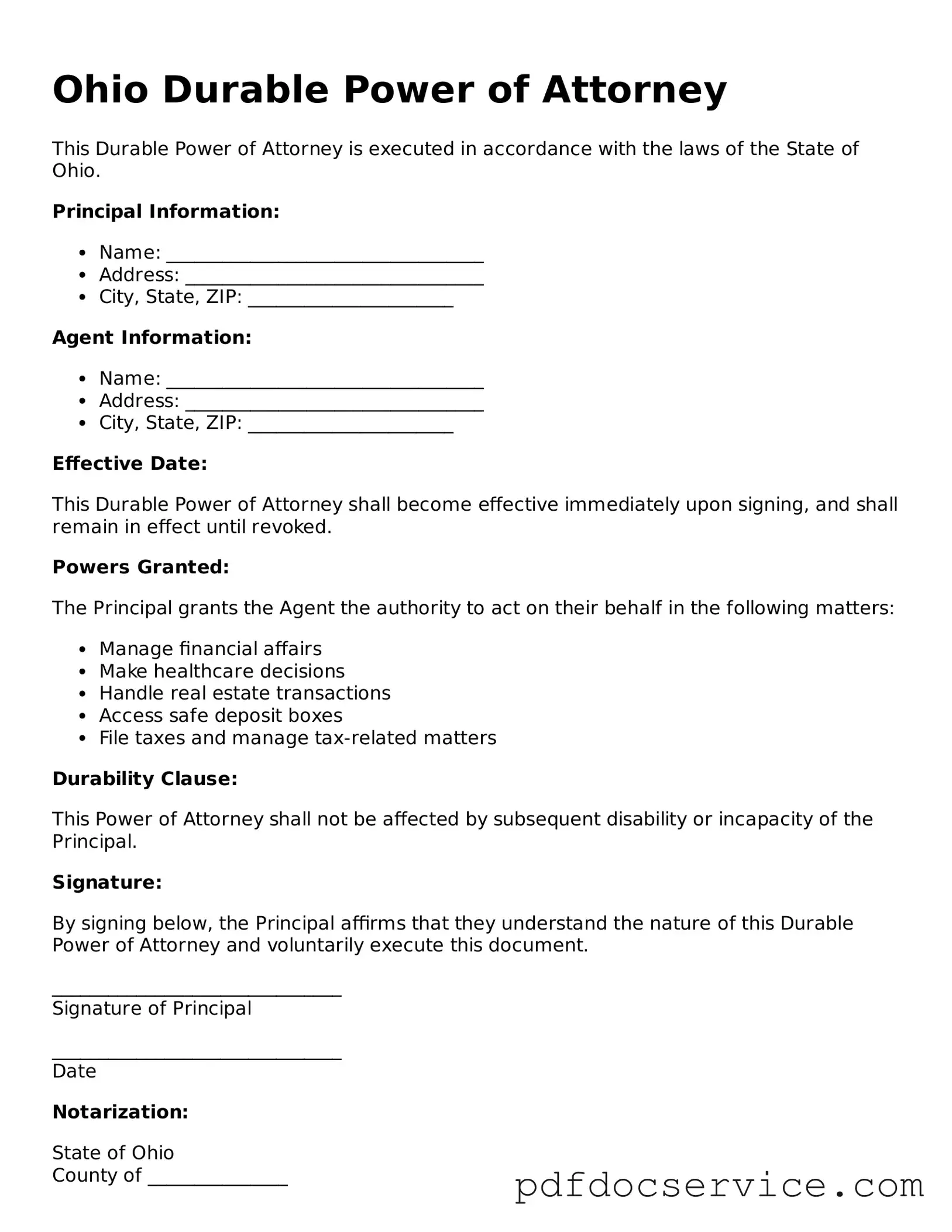What is a Durable Power of Attorney in Ohio?
A Durable Power of Attorney (DPOA) in Ohio is a legal document that allows an individual, known as the principal, to appoint another person, referred to as the agent or attorney-in-fact, to make decisions on their behalf. This authority remains effective even if the principal becomes incapacitated. The DPOA can cover a wide range of decisions, including financial matters and healthcare choices.
Why should I consider creating a Durable Power of Attorney?
Creating a Durable Power of Attorney is a proactive step toward ensuring that your wishes are respected, especially in times when you may not be able to communicate them yourself. It provides peace of mind, knowing that a trusted person can manage your affairs. Additionally, it can help avoid potential legal complications or delays in decision-making during critical moments.
Who can be appointed as an agent under a Durable Power of Attorney?
In Ohio, you can appoint any competent adult as your agent. This could be a family member, friend, or a professional, such as an attorney or financial advisor. It is essential to choose someone you trust, as they will have significant authority over your financial and personal decisions.
What powers can I grant to my agent?
The powers granted to your agent can be tailored to fit your needs. Common powers include:
-
Managing bank accounts and investments
-
Buying or selling property
-
Handling tax matters
-
Making healthcare decisions
You can specify which powers you wish to grant or limit, ensuring that your agent acts in accordance with your wishes.
How do I create a Durable Power of Attorney in Ohio?
To create a Durable Power of Attorney in Ohio, you must follow these steps:
-
Choose a trusted agent.
-
Draft the DPOA document, ensuring it includes your name, the agent's name, and the powers granted.
-
Sign the document in the presence of a notary public.
-
Provide copies to your agent and relevant parties, such as financial institutions or healthcare providers.
While you can find templates online, consulting with an attorney can help ensure that your document meets all legal requirements and reflects your intentions.
Can I revoke a Durable Power of Attorney?
Yes, you can revoke a Durable Power of Attorney at any time, as long as you are mentally competent. To do so, you should create a written revocation document and notify your agent and any institutions that have a copy of the original DPOA. It is advisable to destroy any copies of the previous DPOA to avoid confusion.
What happens if I do not have a Durable Power of Attorney?
If you do not have a Durable Power of Attorney and become incapacitated, your loved ones may need to go through a court process to have a guardian appointed. This process can be lengthy, costly, and emotionally taxing. By having a DPOA in place, you can avoid this situation and ensure that your affairs are handled according to your preferences.
Is a Durable Power of Attorney the same as a Living Will?
No, a Durable Power of Attorney and a Living Will serve different purposes. A DPOA focuses on appointing someone to make decisions on your behalf, while a Living Will outlines your wishes regarding medical treatment and end-of-life care. Both documents are important for comprehensive planning, but they address different aspects of your health and financial decisions.

